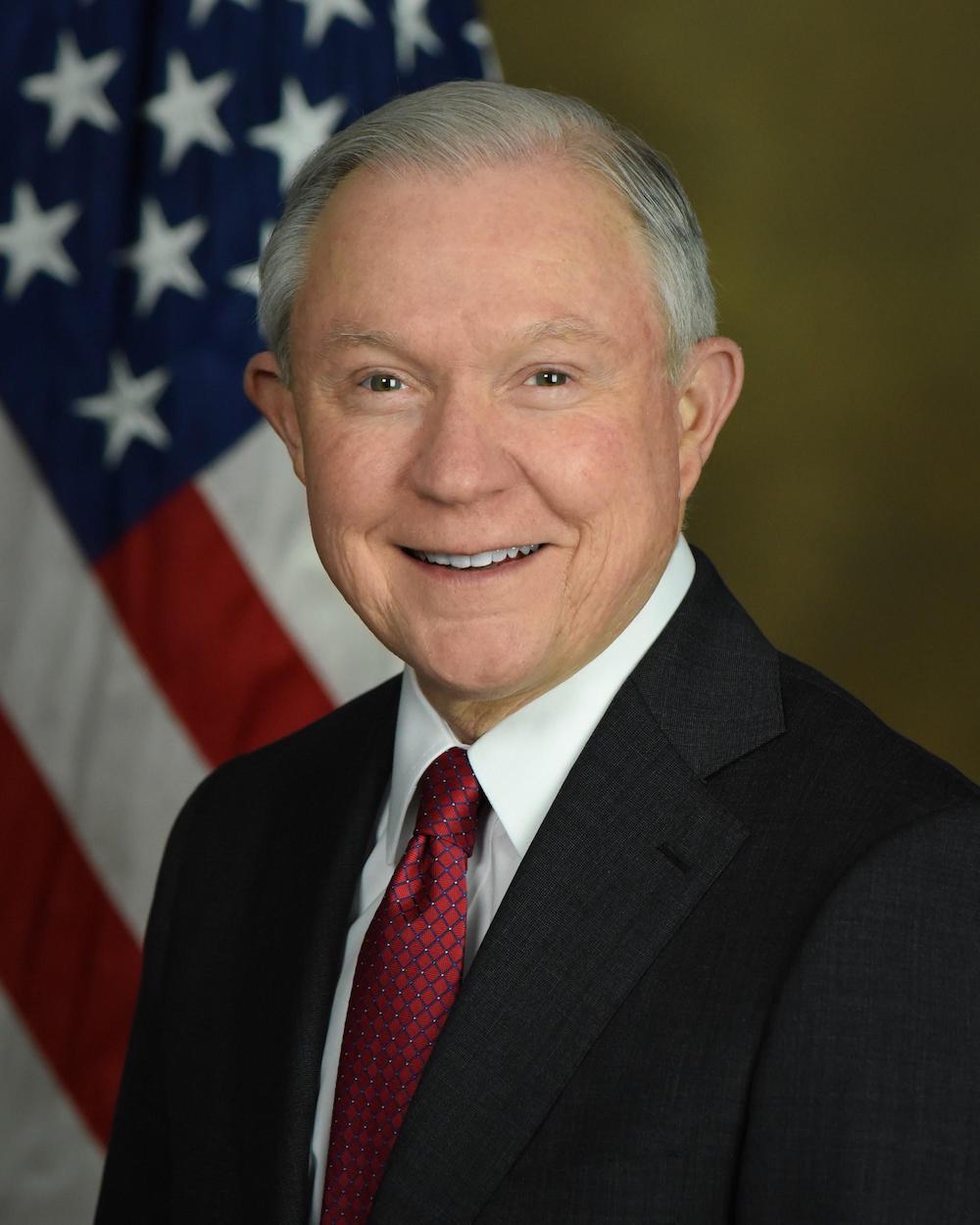In a move that will surprise few people, conservative Attorney General Jeff Sessions—who has previously touted “state’s rights” as being of critical importance in the past—appears to be attempting to override state’s rights when it comes to legalized medical and recreational marijuana use. More than half the country—twenty-ninee states—have adopted medical marijuana laws which legalize at least some cannabis use for medical purposes. Eight states and the District of Columbia have legalized marijuana for recreational use.

Earlier today, the Attorney General issued a confusing press release and DOJ memo regarding Federal marijuana enforcement which drew quick reaction by governors in states where marijuana use in now legal. In the memo (full text here), Sessions appeared to attempt to reverse former President Obama’s hands-off approach to Federal marijuana enforcement.
In 2013, under then-President Obama, then-Deputy Attorney General James M. Cole issued a memo later referred to as the “Cole Memo” which outlined the administration’s relaxed position on Federal marijuana enforcement. Today’s action by Sessions explicitly rescinded that memo. So what is now in its place? A mess of confusion about whether the Federal government will once again involve itself again in the prohibition of marijuana production, distribution, and consumption.
What Does This Mean for Medical Marijuana Use?
Probably not much. In May of 2017, Attorney General Sessions In May, Sessions asked Democratic and Republican leaders in Congress to allow him to prosecute medical marijuana, but his pleas appeared to fall on mostly deaf ears. It was probably more of a stunt for right-wing law-and-order Trump supporters. Politically, it would be foolish suicide for Sessions to target– for example– people suffering from chronic pain who rely upon marijuana to go about their daily lives. Even the most ardent anti-drug conservatives tend to feel that medical marijuana should be legal. It’s estimated that 94% of Americans support medical marijuana legalization. It is therefore highly unlikely that you’ll see FBI agents busting down downs of the homes of chemotherapy patients or the terminally ill in order to confiscate their pills or edibles.
What Does This Mean for Recreational Marijuana Use?
Much like medical marijuana, recreational use in legal states will probably remain legal. Why? Lack of manpower and political will. First of all, there aren’t enough Federal agents in the entire country to stop recreational use in Humboldt County California, let alone the million-plus communities of Portland Oregon, Seattle Washington, Denver Colorado, San Francisco or Los Angeles California. Second, the governors of these states are very politically-aware of the finances that recreational use bring to their states. Governor Jay Inslee of Washington State has already voiced concern over the Sessions memo, as have Oregon Governor Kate Brown, and Colorado Senator Cory Gardner. Sessions won’t risk alienating himself and creating enemies with seven governors over personal cannabis use. California—with its economy being the sixth largest economy in the world—just started marijuana sales days ago. The state is a political and economic force to be reckoned with, and it’s unlikely Federal law enforcement would have the political or practical capability to involve themselves with all state-legal marijuana sales.
What Does This Mean for Cannabusiness?
This remains to be seen… and is the most concerning. What’s most remarkable about Sessions’ memo is how vague and confusing it is. It does not say what exactly will be done in the states that have legalized recreational marijuana use. Will Federal SWAT teams be seizing and burning commercial crops? Raiding large dispensaries? Attempting civil forfeiture of funds from successful marijuana businesses?
Thankfully, even though the memo doesn’t set forth new details on enforcement, it appears to indicate a reversion to previous enforcement efforts. This means we can look for guidance as to historical enforcement efforts at the Federal level.
Based on marijuana enforcement prior to state legalization and the Cole Memo, we can probably expect more Federal enforcement of marijuana trafficking from outside the country (i.e. Mexico and China would be likely targets for the Trump administration), commercial black market marijuana trafficking, use of firearms in combination with marijuana trafficking, and illegal commercial marijuana trafficking that stems from legal marijuana trafficking (e.g. growers selling marijuana outside of otherwise state-legal restrictions). I would also expect banks to be even more concerned about having ties with state-legal marijuana businesses, although most cannabusinesses already rely upon cash for their transactions because banks won’t let or entangle themselves with activities that possibility violate Federal law.
Marijuana legalization advocates and enthusiasts can likely take some comfort in the fact that there is now a critical mass of legal marijuana use throughout the country, and it would be next to impossible to reverse that social and political development. Gallup has found in their polls that 64% of Americans now feel that marijuana should be legalized. That’s right: More Americans agree that medical marijuana should be legal than those who agree that Donald Trump should even be president.
Sessions is most likely pandering to ultra-conservatives as simply an extension of the Trump administration, and has no plan or little ability to begin a new drug war. Nevertheless, medical and recreational users of marijuana– as well as cannabis businesses– should likely tread lightly and avoid entanglements which violate other Federal laws or their local state laws. It very well could be the case that Federal law enforcement will be looking for low-hanging fruit to go after—to use as examples—in support of even more enforcement powers.
-Michael Romano
Michael Romano is an Oregon criminal defense attorney.














